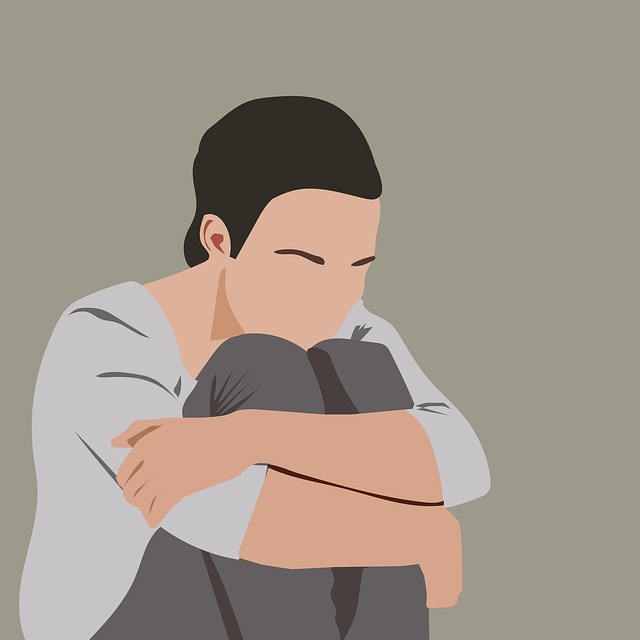Castle Rock Sexual Abuse Survivor Therapy (CRSAT) provides holistic support for survivors through therapy, counseling, and mentorship programs, focusing on resilience and emotional intelligence. Understanding cultural sensitivities, past traumas, and economic barriers is crucial in designing outreach to vulnerable populations. Effective outreach involves building trust, engaging community leaders, education campaigns, and empowering survivors with self-care practices. CRSAT's multi-faceted approach includes specialized counseling, public awareness, trauma support services, and continuous improvement through evaluation metrics like attendance rates and client feedback.
In many communities, there’s a critical need for support services addressing sexual abuse survivors. This article delves into the implementation of Castle Rock Sexual Abuse Survivor Therapy outreach programs, exploring strategies to effectively serve vulnerable populations. We discuss building trust and overcoming barriers to accessing support, detailing program components such as counseling, education, and advocacy, and providing insights on measuring success. By understanding these key aspects, communities can foster healing and create a safer environment for survivors.
- Understanding Castle Rock Sexual Abuse Survivor Therapy: A Community Need
- Designing Effective Outreach Strategies for Vulnerable Populations
- Building Trust and Overcoming Barriers to Accessing Support Services
- Implementing Program Components: Counseling, Education, and Advocacy
- Measuring Success and Continuous Improvement in Community Healing
Understanding Castle Rock Sexual Abuse Survivor Therapy: A Community Need

In many communities, sexual abuse survivors often face significant challenges navigating their emotional and psychological well-being due to trauma. Castle Rock Sexual Abuse Survivor Therapy (CRSAT) steps into this critical need by providing specialized support tailored for individuals who have experienced sexual assault. CRSAT goes beyond addressing the immediate aftermath of abuse; it focuses on holistic healing through therapy, counseling, and mentorship programs designed to enhance emotional intelligence and build resilience.
The implementation of such initiatives is crucial in reducing the societal stigma surrounding mental illness, particularly among survivors of sexual abuse. By integrating social skills training into their therapeutic approach, CRSAT empowers individuals to regain a sense of control, fostering better coping mechanisms and improved relationships. Ultimately, these efforts contribute to creating a more supportive community environment where emotional well-being is prioritized, and survivors are equipped with the tools necessary for personal growth and recovery.
Designing Effective Outreach Strategies for Vulnerable Populations

When designing outreach strategies for vulnerable populations like sexual abuse survivors in Castle Rock, it’s crucial to understand their unique needs and barriers to accessing support. This may involve tailoring services specifically to address cultural sensitivities, past traumas, or economic constraints. Engaging community leaders and organizations trusted by these populations can significantly enhance accessibility and trust. For instance, partnering with local churches or community centers frequented by survivors can provide a safe space for therapy sessions and support groups.
Implementing effective outreach goes beyond merely advertising available services. It involves fostering meaningful connections through education, awareness campaigns, and events that resonate with the target audience. Promoting self-care practices like Mindfulness Meditation and Stress Reduction Methods tailored to their circumstances can also empower survivors to take control of their healing journey. By combining targeted communication strategies with accessible, compassionate care, initiatives like Castle Rock Sexual Abuse Survivor Therapy can better serve and support those who need it most.
Building Trust and Overcoming Barriers to Accessing Support Services

Building trust is a fundamental aspect of community outreach, especially when addressing sensitive issues like sexual abuse survivor therapy. Castle Rock Sexual Abuse Survivor Therapy programs must foster an environment of safety and support to encourage individuals to seek help. This involves developing strong relationships with the community, understanding their unique needs, and tailoring services accordingly. By gaining the trust of survivors and their families, professionals can overcome barriers that often prevent access to essential support.
Many obstacles exist when it comes to accessing mental health services, including stigma, fear of judgment, and a lack of awareness about available resources. To address these challenges, community outreach programs should focus on education and raising awareness. Mental health professionals play a crucial role in developing effective risk management planning strategies that ensure client confidentiality while also adhering to ethical guidelines. By promoting understanding and reducing barriers, Castle Rock Sexual Abuse Survivor Therapy can empower individuals to take control of their mental well-being, fostering confidence-boosting resilience and improved mood management skills.
Implementing Program Components: Counseling, Education, and Advocacy

Implementing effective community outreach programs involves a comprehensive approach that addresses multiple aspects of support and development. One such crucial component is counseling services tailored for sexual abuse survivor therapy, such as those offered at Castle Rock Sexual Abuse Survivor Therapy centers. These services play a pivotal role in helping individuals navigate their traumatic experiences and facilitate healing processes. By providing safe spaces where survivors can share their stories and receive professional guidance, these programs empower them to regain control of their lives.
Education is another vital pillar in the implementation process. Public Awareness Campaigns Development initiatives focus on spreading knowledge about sexual abuse, its signs, and available support systems. This aspect empowers communities to identify potential issues early on and promotes a culture of prevention. Additionally, Trauma Support Services integrate social skills training to help survivors develop coping mechanisms and enhance their overall well-being. Such programs not only cater to immediate needs but also equip individuals with lifelong tools for managing trauma.
Measuring Success and Continuous Improvement in Community Healing

Measuring success and fostering continuous improvement are vital aspects of any community outreach program, especially when addressing sensitive issues like sexual abuse survivor therapy in Castle Rock. By implementing robust evaluation strategies, organizations can assess the impact and effectiveness of their initiatives. This involves collecting qualitative and quantitative data to understand the short-term and long-term outcomes for participants. Metrics such as attendance rates, client feedback, and progress reports can provide valuable insights into the program’s success.
For instance, tracking improvements in self-esteem and inner strength development among survivors is a significant indicator of therapy effectiveness. Additionally, monitoring depression prevention efforts can reveal the program’s ability to mitigate existing mental health challenges. Through ongoing assessment, community outreach programs can adapt their strategies, ensuring they remain relevant and impactful. This iterative process allows for continuous growth and refinement, ultimately enhancing the overall healing journey for individuals seeking support.
The implementation of community outreach programs, such as Castle Rock Sexual Abuse Survivor Therapy, is a multifaceted approach to addressing a critical need. By designing effective strategies, building trust, and providing comprehensive services like counseling, education, and advocacy, we can significantly enhance access to support for vulnerable populations. Continuous improvement, measured through tailored metrics, ensures these initiatives remain impactful and responsive to the evolving needs of survivors. This holistic approach not only facilitates healing but also fosters a more inclusive and supportive community environment.














